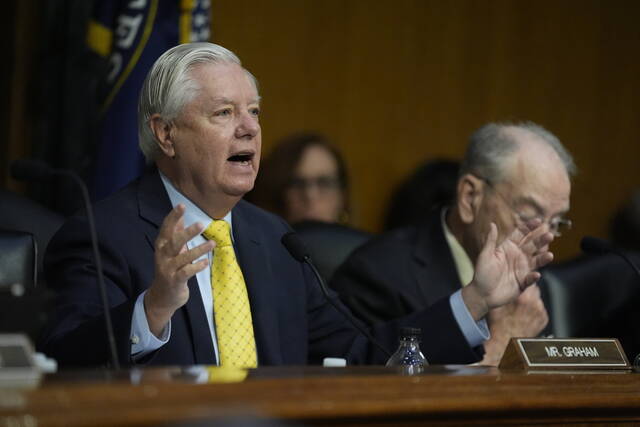McCandless Town Council authorized Gateway Engineers to study the creation of a fee-based utility plan to help finance increasing costs of stormwater management in McCandless.
The engineers anticipate returning to council within 60 days with their findings. Council authorized the study on Oct. 11 for a fee of $20,000.
A stormwater utility plan, if approved, would help pay for unfunded federal- and state-mandated regulations associated with Municipal Separate Storm Sewer Systems, or MS4s, including costs for collection and management of stormwater and pollution control.
One funding avenue suggested by the Gateway engineers at the Oct. 11 meeting was implementation of a uniform fee for all residents and nonresidents.
MS4s are the “township-owned conveyance or system of conveyances that collects stormwater within an urbanized area,” according to the Gateway presentation.
MS4 requirements include implementing a stormwater management plan, tracking progress, providing annual reports of progress and pollution reduction plans.
McCandless has a “pretty big stormwater system” encompassing approximately 130 miles of stormwater sewers of various sizes, approximately 4,500 inlets and 60 stormwater ponds, according to Dan Deiseroth, professional engineer with Gateway.
The township also maintains several bridges and oversees private stormwater sites, Deiseroth said.
The township’s budget already finances costs associated with stormwater management, including upgrading aging infrastructure and addressing flooding issues, according to Deiseroth.
Gateway has implemented similar plans for three other municipalities including Mt. Lebanon, Whitehall, and Hampton, said Ryan Berner, Gateway engineer. The firm has represented McCandless for 35 years.
MS4 government requirements keep growing, according to the engineers. These include public education and involvement, building stormwater sewer maps and monitoring stormwater emptying into creeks, monitoring construction sites, handling post-construction stormwater and pollution prevention.
To fund the MS4 requirements, Berner said the township could consider several options, including raising taxes. Or, council could do nothing and ignore the mandates, but that would mean state and federal fines, he said.
The engineers would analyze images and visit sites to sample residential properties in McCandless and collect data on impervious surfaces, which refers to areas where water runoff occurs, such as driveways or roofs.
The fee is based on the impervious surface area, or an equivalent residential unit. Median value becomes the size of one ERU, according to Gateway engineers. This is typically between 2,000 and 3,500 square feet, Berner said.
Also, nonresidential, including commercial properties, schools and municipality buildings, would each be analyzed to determine their impervious surface areas, and fee applied.
For example, Hampton’s current fee of one ERU is $9.58 monthly or $115 annually. Nonresidential properties there are currently assessed at $98.50 monthly or $1,150 per year, Berner said.
This generates annual revenue of $1,748,000 for Hampton.
The engineers said a uniform fee based on a median property seems to be the most equitable solution.
Monies from this fund can be used for a number of things, including upgrading stormwater infrastructure, capital improvements, or even road maintenance as roadside drainage is part ofcan create stormwater issues, Berner said.
Property owners with a stormwater management system already in place can receive a credit back. The township would have to inspect their system annually by the township to ensure proper operation and maintenance.
Tax-exempt properties, such as churches and other nonprofits, would also be subject to a stormwater fee.
Council and administration will also would have to determine if there would be an end-date to the fee, or if it would be ongoing.
The fee could be adjusted in future, Berner said.
The engineers said they’ve noticed that the MS4 requirements continue to increase and get more stringent.
The assessment is just a beginning step, Berner said.
“I think this problem is not going away and all evidence leads us to believe it’s going to get worse,” said council member Patricia Cloonan.
“We need to be proactive. We need to do something differently and I think this is a step forward,” said Kim Zachary, council president.







